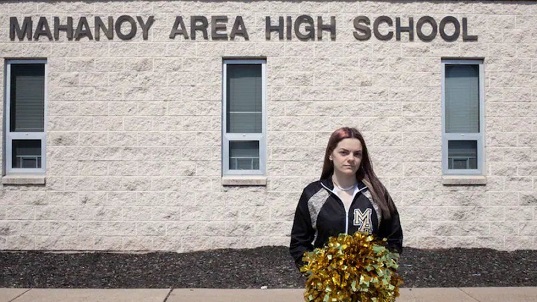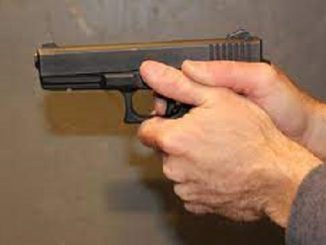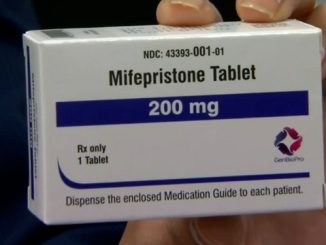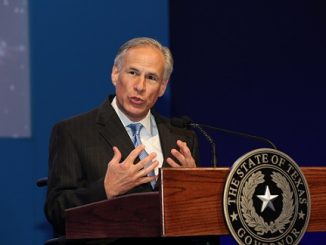
The US Supreme Court has ruled in favour of a teenager who was kicked off her school cheerleading squad over a profane social media post.
In an 8-1 ruling, it concluded that the Mahanoy Area School District had violated Brandi Levy’s freedom of speech under the First Amendment.
The justices were asked to consider whether public schools had the ability to regulate off-campus speech.
The case affects free speech rights for millions of American school students.
Ms Levy, now an 18-year-old college student, was previously a member of the junior varsity cheerleading squad at Mahanoy Area High School in Pennsylvania.
In May 2017, when she was 14, Ms Levy made a Snapchat post after an unsuccessful try-out for the school’s varsity team. She uploaded it while at a convenience store in Mahanoy City.
The post featured a picture of her and a friend raising their middle fingers, with a profanity-laden caption voicing her displeasure at cheerleading, school, softball and “everything.” In another post, she questioned another girl’s selection to the cheerleading squad.
The post was screenshotted by a friend and shown to another pupil, who was the daughter of one of the cheerleading coaches.
As punishment, Mahanoy Area High School coaches kicked Ms Levy off the cheerleading squad for a year.
She then sued the Mahanoy Area School District, arguing that the decision breached her First Amendment right to free speech. When Ms Levy’s case reached the Court of Appeal last year, the court in Philadelphia ruled in her favour, and the school district decided to take its case to the Supreme Court instead.
It argued that staff commonly take action against pupils for speech and actions that happen off-campus, and that this power is important for tackling bullying, racism and harassment that occurs on social media outside of school hours.
But the American Civil Liberties Union, which represented Ms Levy and her parents, argued that students needed to be protected from censorship and monitoring.
In its decision, the Supreme Court concluded that Ms Levy’s right to freedom of expression, protected under the First Amendment of the US constitution, had been violated since the social media posts did not cause substantial disruption at the school.
But the court added that schools still had a “significant” license to regulate student speech “in some off-campus circumstances”. It said it would not categorically define which “school-related off-campus activities” this meant.
Pupils’ right to free speech in public schools is protected by a landmark Supreme Court case from 1969 – Tinker vs Des Moines Independent Community School District – when pupils wore black armbands to protest against the Vietnam War.
The court in that case ruled that pupils’ speech was protected as long as it did not cause “material and substantial” disruption to the school.
But, until now, it had not addressed how to handle school-related speech made by students off-campus.
Source: bbc.co.uk






Be the first to comment